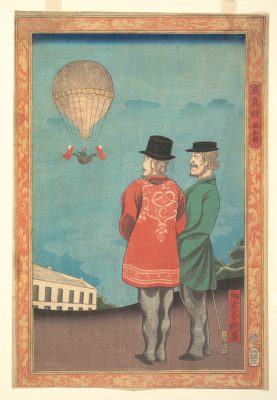 I like to kick the tires of the FYW courses, looking for places that might need reinforcement or further thought. One soft spot I am always noticing in my own courses is my delivery on the promise that the writing we do in the class is not just a performance of competence or a simulacrum of engagement that effectively goes nowhere, what I refer to as “writing for the teacher.” I do act on this promise. Each new iteration of my FYW courses pushes further toward more circulation of student work, more collaboration, and more focus on student-driven commentary. I see the FYW courses as essentially environments designed to feature and support communication by students to students. The writing seminar is most of all a place for students to see their writing, perhaps for the first time, as something purposeful and context-specific, designed for others’ use. As we explore—verbally and through drafts—our various interactive encounters with texts and ideas of others, we all learn from the discourse that begins to flow out of the course itself. And supplementing this work with a range of supporting articulations such as presentations, abstracts or introductory statements, and responses to other projects allows for further recognition that the learning in a writing seminar happens in this open exchange. For the most part, I am delighted by this evolution toward exchange that makes the other courses I teach (often content-driven literature courses) feel a little old-fashioned, wooden, unidirectional.
I like to kick the tires of the FYW courses, looking for places that might need reinforcement or further thought. One soft spot I am always noticing in my own courses is my delivery on the promise that the writing we do in the class is not just a performance of competence or a simulacrum of engagement that effectively goes nowhere, what I refer to as “writing for the teacher.” I do act on this promise. Each new iteration of my FYW courses pushes further toward more circulation of student work, more collaboration, and more focus on student-driven commentary. I see the FYW courses as essentially environments designed to feature and support communication by students to students. The writing seminar is most of all a place for students to see their writing, perhaps for the first time, as something purposeful and context-specific, designed for others’ use. As we explore—verbally and through drafts—our various interactive encounters with texts and ideas of others, we all learn from the discourse that begins to flow out of the course itself. And supplementing this work with a range of supporting articulations such as presentations, abstracts or introductory statements, and responses to other projects allows for further recognition that the learning in a writing seminar happens in this open exchange. For the most part, I am delighted by this evolution toward exchange that makes the other courses I teach (often content-driven literature courses) feel a little old-fashioned, wooden, unidirectional.
And yet, in my FYW classes, the final drafts of formal projects are usually delivered to and read only by me. The individuating work of assigning grades to essays, a task with a value that seems less clear to me than it once did, effectively closes the conversation. I don’t want to overstate the case here. Most students feel that they do learn, more or less, what other students are up to. But, unless we decide to have students share or present final essays to each other, the last wave of revision and writing remains a private exchange between student and teacher.
I’ll admit that I’ve never liked writing contests for FYW courses. Stripped of their contexts, student essays “compete” in ways that, to me, run counter to the values of the courses. Is the goal to demonstrate a kind of mastery over a generalized form? Is it to give pleasure to readers? Contests do provide opportunities for students to see their writing beyond the course context, and this is important. But I’d like to imagine ways to do so in ways that might retain the more purposeful goals of the academic writing students produce in FYW courses.
At UConn’s Hartford campus, we’ve begun to think about an idea that could offer an example for something like this. Because our campus is moving next year to downtown Hartford, we will all be adjusting to and learning about the city. I’ve floated the idea of having FYW sections broadly address themes that might relate to this transition. Texts and assignments might take up questions related to cities, Hartford itself, public space, museums or libraries (we’re next door to the Wadsworth and the HPL), and so much more. Many teachers already teach courses with content that easily folds into these topics, and no one would be obligated to participate. But an end-of-year event related to this transition that features student work happening within and beyond the FYW courses might create a forum that would invite students to see their work as potentially meaningful in a greater context. The event would be more recognizable as an academic conversation, an inquiry into an ongoing set of questions, than merely a contest. It’s not an entirely new idea, and it is only in an embryonic form. But I’m hopeful it can become a sustainable site for FYW work.
What ideas do you have for how we might get past the hushed finality of “final draft submission”? I’ve tried to unlock the comments for posts feature. Let me know if you have trouble responding.
*Image: Miyagi Gengyo, Picture of a Balloon (1860)